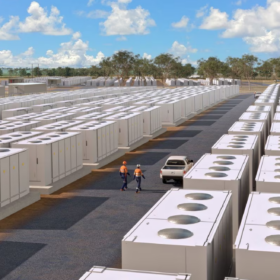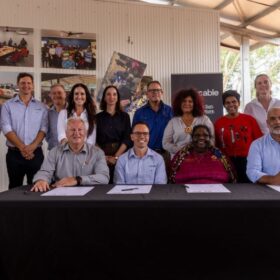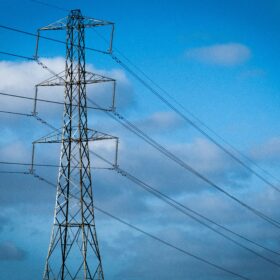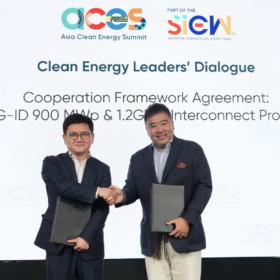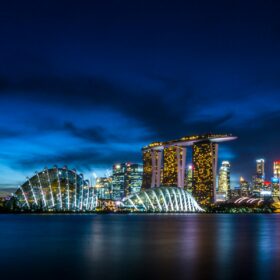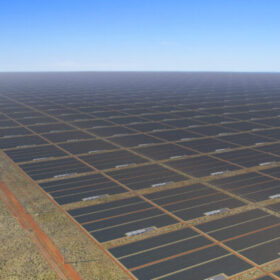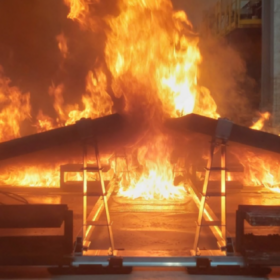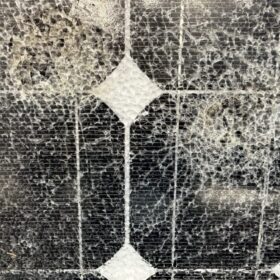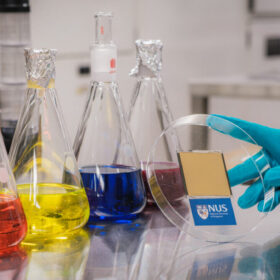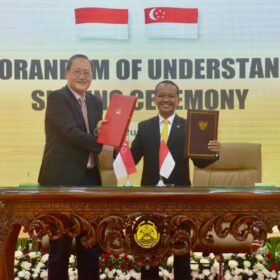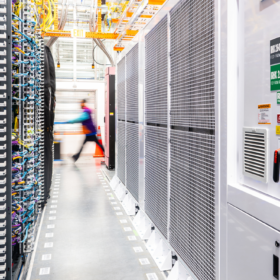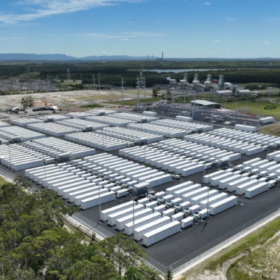Singapore energy giant Sembcorp buys Alinta Energy for $6.5 billion
Sydney-based energy gentailer Alinta Energy has been purchased from owner, Hong Kong conglomerate Chow Tai Fook Enterprises by Singaporean energy company Sembcorp Industries for $6.5 billion.
SunCable strikes deal with traditional owners to build NT solar farm
SunCable has struck a multi-million-dollar deal with traditional owners that will enable it to develop the biggest solar farm in Australia on a cattle station in the Northern Territory.
Singapore, Australia regulators deepen energy cooperation
The Australian Energy Regulator (AER) agreed this week to enhance collaboration with Singapore’s energy market regulator on electricity and gas market regulation, as well as low-carbon technologies.
Singapore, China to supply solar-plus-storage power from Indonesia
Singapore’s Equator Renewables Asia (ERA) and China’s CRE International Co. Ltd (CREI) will jointly develop a 900 MW solar and 1.2 GWh battery project in Indonesia, with 400 MW (AC) slated for export to Singapore.
Singapore approves 1 GW hydropower import project from Malaysia
Singapore has conditionally approved a 1 GW hydropower import project from Malaysia’s Sarawak state, with first deliveries expected around 2035.
Solar megaproject’s Singapore exports has social licence work to do: research
The proposed Australia-Asia PowerLink, a Northern Territory 12,000 hectare solar megaproject, has received a thumbs up from 89% of survey respondents who say they support the project’s construction, but remain skeptical about its Singapore exports.
Researchers find flames spread 46% faster on degraded module backsheets
Singapore researchers accelerated PV backsheet weathering to investigate flame spread behavior finding after six weeks, flame spread was 46% faster than on unweathered PV backsheets, saying current safety standards fail to account for long-term degradation.
Upcycling solar glass waste to use in solid-state lithium batteries
Researchers in Singapore have milled solar panel glass waste for use in cathodes in solid-state lithium metal batteries. When used as a functional filler in solid polymer electrolyte (SPE) material, the resulting battery performance was maintained over 80 charge cycles with an 8.3 % improvement over the reference device.
SERIS achieves world record efficiency of 26.7% for perovskite-organic tandem solar cell
The tandem device is based on a bottom organic cell that can achieve a power conversion efficiency of 17.9% and a high short-circuit current density of 28.60 mA cm2. Furthermore, it uses a top perovskite solar cell with an open-circuit voltage of 1.37 V and a fill factor of 85.5%.
Indonesia, Singapore partner on solar supply chain in Riau Islands
Indonesia and Singapore have signed a memorandum of understanding to develop a solar manufacturing supply chain in Indonesia’s Riau Islands province, as part of broader plans to enable cross-border clean energy trading.
